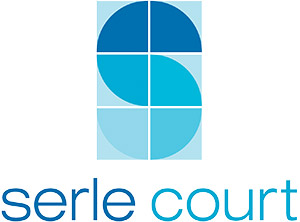Serle Court’s chief executive argues that the blending of chancery and commercial is about seeing legal issues from the client’s point of view
Eighteen months on from the launch of the Business and Property Courts in England and Wales, it is interesting to reflect on what this change means. Not only in terms of maintaining the UK’s lead as the best place in the world for resolving commercial disputes but also for the increasingly artificial distinction between chancery and commercial disputes – now seeing business and legal issues the way our clients do. The new structure, bringing together all the various specialist commercial courts under one judicial roof, was intended to make it easier for international and domestic clients to understand the structure of the High Court in England and Wales. Our commercial courts have belatedly caught up with the realities of commercial life in the 21st century; we know from speaking to our business clients that they do not categorise their issues distinctly as either chancery or commercial. Instead they see ‘problems’ for which they require ‘solutions’. Lawyers may benefit from seeing things from this perspective too.
Since the Courts of Chancery were first established and the principles of equity were developed centuries ago, the legal profession has tended to categorise business clients’ problems according to the lawyers’ own areas of expertise, rather than seeing the issues from the client’s point of view. The late 20th century brought a revolution in law firms’ and chambers’ attitudes to clients, as competition for legal services increased and legal regulators relaxed professional rules that had restricted marketing to clients. ‘Placing clients at the centre of everything we do’ became the mantra of many a law firm’s and chambers’ marketing efforts, and yet, beneath the surface of these new publicity taglines, legal services were still generally being organised around the lawyers’ skillsets, rather than what is most important to clients, and were being represented this way in the profession’s first marketing brochures, and indeed in many cases still are in the websites and social media of today’s digital marketing.

‘Clients do not categorise issues as either chancery or commercial. They see “problems” for which they require “solutions”. Lawyers would benefit from seeing things from this perspective too.’
Breaking out of this ‘siloed’ thinking, and away from the artificial distinction between chancery and commercial disciplines, was part of the rationale for the merger from which Serle Court was born back in 2000, bringing together barrister and clerking teams from the Temple commercial set, One Hare Court, and the leading chancery set that had been upstairs at 13 Old Square in Lincoln’s Inn. When it comes to the largest global commercial disputes, that are steeped in complexity and play across multiple jurisdictions, business and legal issues do not generally present themselves in neat, discrete boxes, labelled by legal practice area by reference to whether or not trust or fiduciary principles may be engaged – and clients certainly do not see them that way. Money may, for example, have gone missing. The client is concerned with who has it, who handled it and who may have assisted them. Whether the relevant claims against those individuals or entities are at common law or in equity is of almost no interest to them.
In many ‘big-ticket’ cases, failing to think outside the box of a particular practice area may lead to missing important arguments and even claims. Commercial counsel have been educated since Lord Millett’s seminal writings as to ‘Equity’s place in the law of commerce’ but may not have the depth of understanding as to equity’s capabilities of a chancery commercial barrister who regularly works with equitable and fiduciary principles in the fields of trusts, companies, partnerships, property, insolvency or tax, for example. It is little wonder that some of the commercial sets have been actively seeking to recruit commercial chancery practitioners; and unsurprising too that one of the leading commercial judges in the Supreme Court is now Lord Briggs, whose practice at Serle Court had been at the Commercial Chancery Bar.
The famous long-running Spartan litigation that opened in court in 2017, with some aspects continuing today, is perhaps one of the best illustrations of the need for a holistic chancery commercial approach: in this multibillion-pound dispute in the Business and Property Courts in London between New Zealand business titans Eric Watson and Sir Owen Glenn, the latter’s investment company was able to set aside a highly complex, cross-border joint venture agreement it had entered into, by relying on three different areas of law, crossing over from commercial to chancery and back again: fraudulent misrepresentation; breach of fiduciary duty; and the rules against bribes and secret commissions.
‘Solicitor clients repeatedly tell us that the ability to collaborate, work in close teams and with “emotional intelligence” is what they’re looking for when they instruct us.’
As Serle Court’s Elizabeth Jones QC, who led the winning legal team, says: ‘High-value “commercial” claims are often claims which involve allegations of breach of fiduciary duty or fraud, and they often also involve issues relating to trusts and company law.’ In this environment, a siloed approach to legal work just will not wash. Similarly, commercial chancery practitioners who have long acted in the courts of various offshore jurisdictions are well used to taking an international view of global business problems. It is unsurprising that so many of the leading practitioners before the international commercial courts, such as the Dubai International Finance Centre Courts, come from commercial chancery sets of chambers.
It is of course vital in applying legal and equitable principles to the business and property disputes of our clients that we work closely with solicitors who have an understanding of both. Serle Court has always led in developing not only that co-operative approach on the part of its barristers but a real interface through the quality of its clerks. Solicitor clients repeatedly tell us that the ability to collaborate, work in close teams and with ‘emotional intelligence’ is what they’re looking for when they instruct us. A far cry from the traditional image of high-handed chancery barristers in their ivory towers, speaking to clients only when required to do so.
Any chancery/commercial distinction that once existed no longer seems that material, especially to those often international clients opting to use London as their litigation base. London appears to remain at the forefront of the world’s biggest commercial disputes and, as we see it, this helps place our clients, and their disputes, at the centre of our litigation offering. In being able to provide counsel teams with multiple specialisms across the traditional chancery, fraud and commercial fields, with real experience in the new Business and Property Courts, clients are given the cleaner power, efficiency and flexibility of the legal hybrid.
John Petrie MBE is the chief executive of Serle Court and is responsible for the business development programme and management of the administrative services of chambers. He is a member of all chambers committees and supported by excellent staff in delivering a high-quality service to both members of chambers and clients. Petrie joined Serle Court in 2015 having previously worked as chief of legal operations in an international war crimes tribunal and as chief executive of a national governing body, this following a career in the armed forces.
For more information, please contact:
John Petrie MBE, chief executive, Serle Court
T: 020 7242 6105










